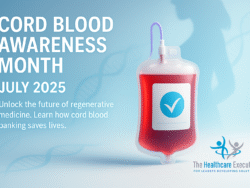World Down Syndrome Day: Inclusive Leadership Begins with Understanding

- Posted by Greg Wahlstrom, MBA, HCM
- Posted in Health Observance Calendar
Bridging Clinical Compassion with Executive Strategy
Published: March 21, 2025
Each year, World Down Syndrome Day on March 21st presents an opportunity for healthcare executives to reexamine their organizations’ inclusion strategies. In the hospital setting, Down syndrome is not merely a clinical diagnosis—it is a call to action for culturally responsive care, governance inclusion, and long-term investment in equitable outcomes. Executive teams must understand that inclusion is not an initiative—it’s an infrastructure. Systems like Children’s Hospital Colorado have created specialized Down syndrome clinics that serve as community anchors while modeling interdisciplinary care. These programs blend cardiology, developmental medicine, and behavioral health in ways that executive leaders should champion systemwide. Hospital boards and C-suites must recognize this day not just as symbolic, but as strategic.
From a governance standpoint, World Down Syndrome Day compels organizations to embed individuals with disabilities and their advocates into decision-making processes. According to the National Down Syndrome Society (NDSS), inclusion at the governance level improves organizational empathy and strengthens credibility among patient families. The Advocate Children’s Hospital in Illinois illustrates this through its inclusive family advisory councils that co-develop pediatric care strategy. These models aren’t just ethically sound—they are operationally efficient, improving satisfaction metrics and reducing unnecessary utilization. Hospital executives must evolve from “awareness” campaigns toward infrastructure that reflects and respects the lived experiences of the Down syndrome community. At The Healthcare Executive, we view this not as optional—it’s essential to mission-aligned leadership.
Operational leaders are tasked with designing patient journeys that address the nuanced needs of those with trisomy 21. Down syndrome patients are at elevated risk for cardiac, endocrine, and immunological issues, requiring seamless coordination between departments. As detailed by the NIH INCLUDE project, clinical research must guide protocols, staffing ratios, and patient education strategies. Hospitals like Mass General for Children are already leading this shift with comprehensive Down syndrome programs that span from prenatal consultations to adult transitions. These frameworks should inspire service line development and digital care pathways across systems. Executives must champion scalable models that fuse personalized medicine with population health logic—especially for vulnerable genetic cohorts.
Public perception and executive messaging also matter. Down syndrome awareness must be integrated into broader Diversity, Equity, Inclusion, and Accessibility (DEIA) communications. Storytelling platforms such as the Global Down Syndrome Foundation offer authentic narratives that hospital marketing teams can amplify responsibly. Moreover, strategic partnerships with advocacy groups can strengthen trust and diversify branding assets. At a time when hospital reputations are tightly interwoven with values, this observance offers executives an avenue to communicate inclusive intent. Communication leaders should audit their content calendars and patient materials to ensure Down syndrome inclusion is not sporadic—but systemic. Equity in branding is reputational equity.
Finally, executive development programs must evolve to include neurodiverse competency. Boards and C-suites must be fluent in disability rights, medical ethics, and emerging models of inclusive innovation. Health systems such as Cincinnati Children’s Hospital are integrating these themes into clinician and administrator training modules. Forward-thinking CEOs will build DEIA goals directly into strategic planning frameworks and succession planning. World Down Syndrome Day 2025 should not just be a human resources milestone—it should be an enterprise-wide inflection point. Hospitals that invest in inclusive leadership today are not only fulfilling moral imperatives—they are shaping future-ready systems built on dignity, data, and design.
Discover More
For executive strategies that promote inclusive care delivery and long-term health equity, explore our coverage of culturally responsive leadership in action.
Internal Links
- Advancing Health Equity Through Strategic Initiatives
- The Healthcare Workforce Crisis: Executive Solutions That Actually Work



